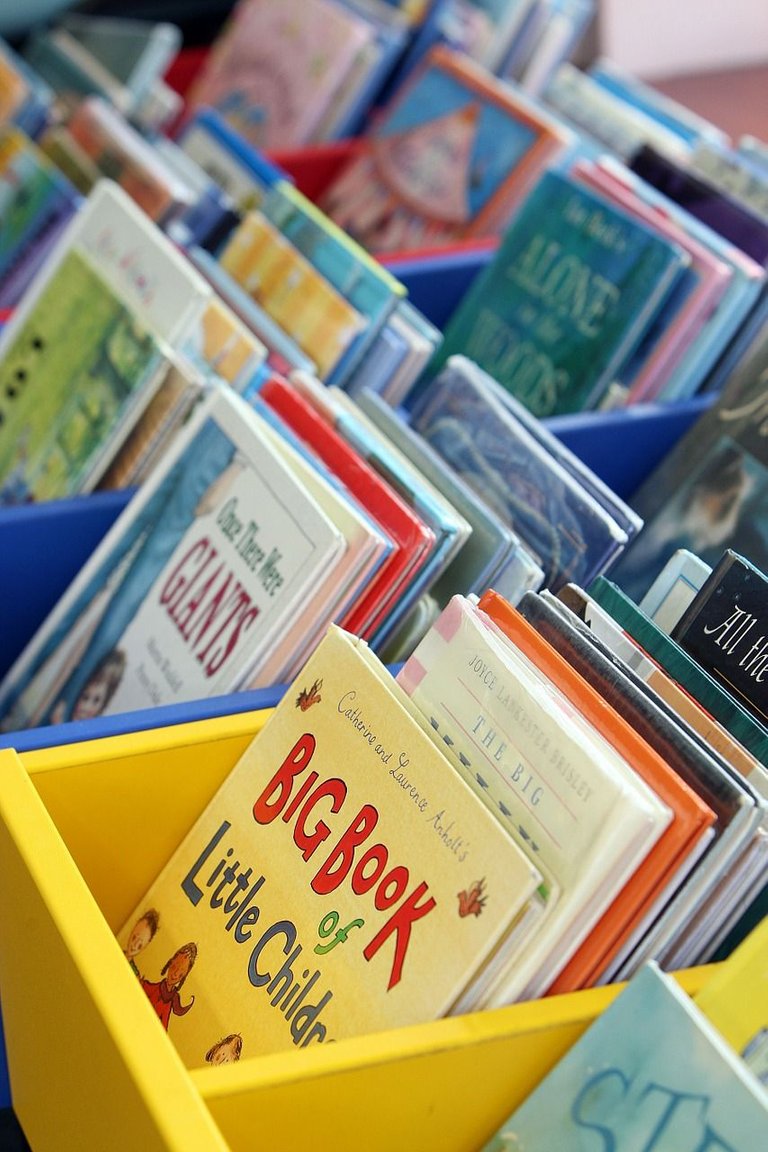
ENGLISH
Hello, dear friends!
Sorry for barging into the community without introducing myself. I'm like that in real life too. I arrive at a place without saying anything, neither my name nor any other kind of introduction, and comment and talk and leave without introducing myself. Habits that I don't think I can ever give up, I have tried, but it turns out that I always come back to this routine. And no, in this post I am not going to talk about me. I just want to comment that my name is Samuel Pavan, better known by Pavan than by Samuel, and that I am dedicated to the humanities area, closer to literature, but with a very short but nice career in education. And in this world of education I have had to learn on my own important things of psychology.
One of these big important things in psychology is Dyslexia. It turns out that when I started in this career of education one of my professors in college commented to me that I might suffer from a mild dyslexia problem. My response to all this was: What is dyslexia? It was the first time someone had ever said such a thing to me. Like any ignorant person, I thought it was an insult. But my teacher, very kindly explained to me that this was not so. That dyslexia is a condition that affects learning. That's how I started to study things about conditions that hinder learning and other psychology topics.
Dyslexia
As I mentioned a moment ago, dyslexia is a condition that makes learning difficult. And it happens to be one of the most common. Psychologically it is said to be a learning disorder not a condition as I am saying. And it involves a difficulty in reading and writing, although it mostly happens in reading. Well, it happens that there is a small problem in speech sound with letters and words. In more understandable words, the reader feels that there is no concordance between the sounds and the word he is reading. For some neural reason he does not correctly associate these two. Maybe it has happened to you at some point. When you are reading and you feel that you do not understand what you are reading or that it does not make any apparent sense, then you read again to see if you are "reading wrong". Well, it's a very similar feeling. It doesn't necessarily mean that you have dyslexia. Although it is true that it is difficult to diagnose this disorder at an early age. It is usually in adulthood that someone is diagnosed as having dyslexia.
The symptoms
The symptoms of dyslexia can be very varied according to the age of the person, and are very difficult to recognize. Just because it is one of the most common learning disorders does not mean it is the easiest to diagnose. I have personally spoken with two or three experts on the subject, and they agree that the complexity of diagnosis lies in the degrees of complexity of the disorder. They told me that each person has different levels of dyslexia, in some it is very noticeable, but in the majority the levels are so low that it can take a long time to be certain that the person has it. But even so, there are some parameters to identify if a person may or may not have dyslexia.
From the time they are born to the time they enter school
- They take time to learn to speak.
- Learns new words with difficulty.
- Difficulty pronouncing words: reverses the order of syllables, confuses words that sound alike, etc.
- Difficulty memorizing letters or numbers.
- Difficulty learning nursery rhymes.
Beginning in school:
- Learns very slowly to read and is below the level of the rest of the class.
- Problems understanding what he/she hears (this is why dictation is important in school).
- Difficulty in formulating correct answers to questions.
- Memory problems, especially in remembering sequences.
- Difficulty seeing and recognizing similarities and differences in words.
- Difficulty learning new words.
- Trouble spelling.
- Takes longer than expected to do writing activities and tasks.
- Avoids having to read and write.
During adolescence and adulthood the following symptoms are added:
- Problems socializing: difficulty understanding jokes, jokes, idioms, sarcasm, etc., that occur in social interactions.
- Difficulties in summarizing particular stories or events.
- Problems learning second languages.
- Difficulties in understanding and solving mathematical problems.
- Problems making decisions.
How many times have you said to yourself: I have this symptom?
How many times have you said to yourself: I have this symptom? Surely more than once. Or most likely you are thinking that someone close to you has many of these symptoms. These are things that happen when you read about these things. Now, if all this leaves you with the question of when to go to the doctor or specialist? Well, the answer is very simple, when you have the perception that that person or you are below the expected level. Normally, in the evaluation report cards, bulletins, or whatever it is called from the place where you read me, teachers place some parameters and expose if the student met all expectations. That can be a good indicator, also if you have the suspicion is not too much to do a check to review and rule out. There are several types of tests to diagnose dyslexia, and it is the safest way.
There is no need to go crazy. Just because you have or an acquaintance or family member has dyslexia doesn't mean he or she is less intelligent or anything like that. Usually this disorder does not affect intelligence levels. Although it can happen that this person suffers from an attention deficit disorder, which can aggravate the learning problem.
Nor should we look for culprits, because the cause of this disorder is hereditary. This means that it is transmitted genetically, someone in the family suffers from it and someone in the family will continue to suffer from it. Certain genes affect the way the brain processes language. But what is known from experience is that the environment in which the person is developing can also affect the levels of dyslexia.
This does not mean that it is untreatable. It cannot be cured, it is true. But there are therapies that help improve people's conditions. That help them to reach a higher potential. And the therapies are going to be varied according to the patient. In the end, what this problem prevents is that a person does not reach his full potential or develop all his capacities.

¡Hola, queridos amigos!
Siento haber irrumpido en la comunidad sin haberme presentado. También soy así en la vida real. Llego a un lugar sin decir nada, ni mi nombre ni otro tipo de presentación, y comentar y hablar e irme sin presentarme siguiera. Costumbres que no creo que pueda llegar a dejar, lo he intentado, pero resulta que siempre vuelto a esta rutina. Y no, en este post no voy a hablar de mí. Solo quiero comentar que me llamo Samuel Pavan, más conocido por Pavan que por Samuel, y que me dedica al área de humanidades, más cercano a la literatura, pero con una carrera muy corta pero agradable en la educación. Y en este mundo de la educación he tenido que aprender por mi propia cuenta cosas importantes de la psicología.
Una de estas grandes cosas importantes de la psicología es La Dislexia. Resulta que cuando comencé en esta carrera de educación una de mis profesoras en la universidad me comentó que podría sufrir un problema leve de dislexia. Mi respuesta a todo esto fue: ¿Qué es la dislexia? Era la primera vez que alguien me decía semejante cosa. Como cualquier ignorante, pensé que era un insulto. Pero mi profesora, muy amablemente me explicó que eso no era así. Que la dislexia es una condición que afecta el aprendizaje. Fue así como empecé a estudiar cosas sobre condiciones que dificultan el aprendizaje y otros temas de la psicología.
La Dislexia
Como hice mención hace un momento la dislexia es una condición que dificulta el aprendizaje. Y resulta que es de las más comunes. Psicológicamente se dice que es un trastorno del aprendizaje no una condición como lo estoy diciendo yo. Y esta supone una dificultad para leer y escribir, aunque mayormente sucede en la lectura. Pues, pasa que existe un pequeño problema en sonido del habla con las letras y las palabras. En palabras más entendibles, le lector siente que no hay concordancia entre los sonidos y la palabra que está leyendo. Por alguna razón neuronal no asocia de manera correcta estos dos. Tal vez te haya sucedido a ti en algún momento. Cuando estas leyendo y sientes que no entiendes lo que lees o que carece de sentido aparente, entonces vuelves a leer para ver si es que “estás leyendo mal”. Pues, es una sensación muy parecida. Eso no necesariamente signifique que tengas dislexia. Aunque es cierto que es difícil de diagnosticar este trastorno en edades tempranas. Normalmente es en la adultez que se le diagnostica a alguien que padece de dislexia.
Los síntomas
Los síntomas de la dislexia pueden ser muy variados de acuerdo a la edad de la persona, y son muy difíciles de reconocer. El hecho de que sea uno de los trastornos del aprendizaje más comunes no quiere decir que sea el más fácil de diagnosticar. Personalmente he hablado con dos o tres expertos en el tema, ellos concuerdan que la complejidad de diagnosticar está en los grados de complejidad del trastorno. Ellos me comentaban que cada persona presenta diferentes niveles de dislexias, en algunos es muy notorios, pero en la mayoría son tan bajos los niveles que puede tomar mucho tiempo tener la certeza de que la persona lo padece. Peor aún así hay unos parámetros para poder identificar si una persona puede llevar a padecer o no dislexia.
Desde que nacen hasta que entran en la escuela
- Tardan para aprender a hablar.
- Aprende con dificultad palabras nuevas.
- Dificultad para la pronunciación de las palabras: invierte el orden de las sílabas, confunde las palabras que tienen sonidos parecidos, etc.
- Dificultad para memorizar las letras o los números.
- Dificultad para aprender canciones infantiles.
Comienzos en la escuela:
- Aprende de manera muy lenta a leer y está por debajo del nivel resto de la clase.
- Problemas para comprender lo que escucha (por esto son importante los dictados en la escuela)
- Dificultad para formulas respuestas correctas a las preguntas.
- Problemas de memoria, sobre todo para recordar secuencias.
- Dificultades para ver y reconocer similitudes y diferencia en las palabras.
- Dificultad para aprender nuevas palabras.
- Problemas para deletrear.
- Tarda más de lo esperado en hacer actividades y tareas de escrituras.
- Evita tener que leer y escribir.
Durante la adolescencia y adultez se suman los siguientes síntomas:
- Problemas para socializar: dificultad para entender chistes, bromas, modismos, sarcasmos, etc., que se de den en las interacciones sociales.
- Dificultades para realizar resúmenes de historias o hechos en particular.
- Problemas para aprender segundos idiomas.
- Dificultades para entender y resolver problemas matemáticos.
- Problemas para tomar decisiones.
¿Cuántas veces te dijiste: yo tengo este síntoma?
De seguro más de una vez. O lo más seguro estés pensando que alguna persona cercana a ti tiene muchos de estos síntomas. Estas son cosas que pasan cuando uno leer sobre estas cosas. Ahora, si todo esto te dejo con la duda de ¿cuándo acudir al médico o especialista? Pues, la respuesta es muy simple, en cuando se tenga la percepción de que esa persona o tú está por debajo del nivel esperado. Normalmente, en las boletas de evaluación, boletines, o como se llame desde el lugar que me lees, los docentes colocan unos parámetros y expones si el estudiante cumplió con todas las expectativas. Ese puede ser un buen indicador, además si tienes la sospecha no está demás hacer un chequeo para revisar y descartar. Existe varios tipos de pruebas para diagnosticar la dislexia, y es la manera más segura.
No hay que volverse loco. El que tengas o un conocido o familiar tuyo tenga dislexia no significa que sea menos inteligente o alguna cosa parecida. Por lo general este trastorno no afecta los niveles de inteligencia. Aunque si puede suceder que esta persona sufra un trastorno de déficit de atención, lo cual puede agravar el problema del aprendizaje.
Tampoco hay que buscar culpables, porque la causa de este trastorno es por herencia. Lo que quiere decir que se transmite genéticamente, alguien en la familia lo padece y alguien en la familia lo seguirá padeciendo. Ciertos genes afectan la forma en como el cerebro procesa el lenguaje. Pero lo que si se sabe por experiencia es que el ambiente donde está desarrollando la persona también puede afectar los niveles de dislexia.
Esto no quiere decir que sea intratable. No se cura, es cierto. Pero existen terapias que ayudan a mejorar las condiciones de las personas. Que los ayudan a alcanzar un mayor potencial. Y las terapias van a ser variadas de acuerdo al paciente. En el fondo este problema lo que evita es que una persona no alcance todo su potencial ni desarrolle todas sus capacidades.







Congratulations @spavan697! You have completed the following achievement on the Hive blockchain and have been rewarded with new badge(s) :
Your next target is to reach 700 comments.
You can view your badges on your board and compare yourself to others in the Ranking
If you no longer want to receive notifications, reply to this comment with the word
STOP